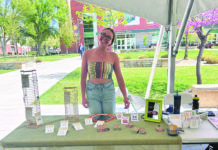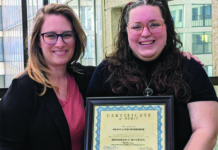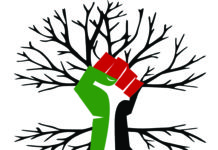The Spring semester of 2021 marks a little under a year of college students dealing with the repercussions of the COVID-19 pandemic. Moving to online classes and limiting in person classes can cause a lot of stress that contributes to students burning out.
Colorado Mesa University (CMU) has put in a mental health initiative and made resources more accessible. While this has been helpful, the beginning of this semester has gone slowly after a longer than normal winter break. Professors are attempting to help their students keep up with work and provide them with accessible help in classes.
“The more challenging and unpredictable our life experiences are, the more vulnerable we are to mental illness challenges; particularly acute stress disorder and depression. The temptation to use substances to cope with stress is also on the rise so there may be longer term consequences for that. On the side of resilience and coping, students who were able to succeed last semester feel more empowered to succeed this semester,” Professor of Psychology, Susan Becker said.
Becker states because CMU’s safety protocols are more predictable and the vaccine is out, that should help some stress. It does not, however, change how we are running classes.
“Faculty members are also struggling with stress and the responsibility to make classes as predictable and accessible for students as we can. That often means preparing and teaching the classes in more than one modality. While this helps students who are ill or in quarantine, it also adds to potential confusion for all concerned,” Becker said.
Taking short breaks and finding a regular place and time to study and work on classes is what Becker recommends to bring stability to your schedule. She also recommends eating healthy, exercising when possible, and reaching out to professors, advisors or any other accesibile figurehead that can help you keep up in classes.
“It can be difficult to completely avoid burnout. To minimize the risk, it is important to be aware of your stress and take immediate action. Contact your professor and seek help with your courses, especially those in which you are struggling. Maintain contact with loved ones and find clubs/activities on campus. Even if you are away from your family, you have your Mavily. Peer support and student groups are available as well as counseling services. And finally, practice good time management skills that include time for self-care,” Psychology professor Michalene Grebski said.
Resources for class help can be found in Tomlinson Library in the form of a tutor. Study groups are also a great option, forming them with people in similar classes can help keep students accountable for their assignments and studying. Professors understand that COVID-19 has impacted how students look at classes and how they do their work and are willing to work with students to make sure their classes go smoothly and they pass.
“Every student will be affected in different ways. Some may thrive in this environment, while many others will experience increased stress, loneliness, cynicism, and even feelings of detachment. How well students adapt to the changing environment will largely determine their mental health outcomes,” Psychology professor Catherine Spann said. “Burnout is a psychological syndrome, arising from chronic stress, where one feels exhausted, cynical, and may come to doubt their abilities. In today’s “hustle” culture, burnout can creep up on us quickly. Add in a pandemic with physical and social isolation, and we feel an even greater burden. Accompanying burnout can be feelings of apathy or a detached attitude toward work or school.”
Spann recommends taking these steps: cultivate awareness, listen to your body, “pause, assess and re-evaluate” and focus on principles over goals. Spann says to take note of those moments where you get stressed, overwhelmed or triggered and determine what causes that and put it higher on the list of priorities. She stated that ignoring your body’s needs can impact your mental health.
“Rest and reflection are important. A healthy amount of enjoyable distractions are great, but make sure you take time to reflect. Allow yourself to feel the emotions that you may be bottling up inside. Assess what is working and what isn’t. Reconnect to your inspiration so that you can keep progressing,” Spann said.






